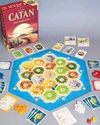Slash and burn agriculture and children firefighters are integral to a form of ‘ungoverned’ agricultural practice in the East Khasi Hills, and despite government prohibitions these practices continue

On a wintry February evening, along a narrow road leading to a village nestled in the East Khasi Hills, some children are playfully running around with branches of dry trees. Smoke hangs in the cold air. Around another winding turn on the road, a fire in the forest comes into sight. A local farmer is burning the undergrowth of the land he owns, employing the traditional slash-and-burn cultivation method. This method, also known as swidden agriculture is referred to locally as jhum cultivation and has been prevalent across South and Southeast Asia for centuries.
Using Fire for Soil Fertility
The dry winter months of January, February and March sees scores of such fires crackling their way through forests, across all states of Northeast India. This fire-fallow farming method helps fix potash in the soil, thereby increasing its fertility. As I stop to watch the fire spread through the forest undergrowth, a spectacular sight, the children come and join me. Only later do I realise that they were not just playing around, they were there as fire-fighters.
I asked the farmer about his land. He explained that he plans to grow pineapples after the soil is prepared. The pineapples of Meghalaya are one of the sweetest and juiciest. This forest land lies along an arterial road connecting villages near the border with Bangladesh. Livelihoods in these villages are sustained by farming privately owned plots of land or community-owned forests adjoining the village. The major crops are betel nuts and leaves, pineapple, jackfruit, oranges, bay leaves, bamboo, tapioca and honey.
Bu hikaye Eclectic Northeast dergisinin March 2018 sayısından alınmıştır.
Start your 7-day Magzter GOLD free trial to access thousands of curated premium stories, and 9,000+ magazines and newspapers.
Already a subscriber ? Giriş Yap
Bu hikaye Eclectic Northeast dergisinin March 2018 sayısından alınmıştır.
Start your 7-day Magzter GOLD free trial to access thousands of curated premium stories, and 9,000+ magazines and newspapers.
Already a subscriber? Giriş Yap

Time For Home Improvement!
Here are some home improvement projects that even absolute beginners will get right

Coping With Anxiety
Here are a few ways that you can deal with anxiety that you may be feeling because of the on-going pandemic

The Spread Continues
According to official reports, African Swine Fever has killed more than 1,700 pigs in Mizoram

Take the Unexplored Path
If you are looking for an underrated destination to explore this year, plan a trip to the charming town of Likabali

The Lotus Blooms Again
The Congress-led grand alliance bites dust in Assam as BJP retains power again in 2021

Painting Heritage
An up-and-coming artist from Nagaland wants to share his culture and heritage through works of art

MUSINGS OF A SOLDIER: TIT-BITS
People often ask me about my life out of uniform. Honestly, I have had no problems. Not so far. Instead, I find it quite refreshing. No routine, no parades, no briefing, no impending operations. Having donned the uniform since the age of thirteen until I hung up my boots last year, could I ever visualize life out of uniform? Not really. But, as I said, the transition has been quite smooth–no hang-overs, no regrets. People have been very positive in their interactions. Government departments have been responsive whenever I have approached for assistance.The genuine respect for the uniform is quite evident and it makes my heart swell with pride. Arunachal, to that extent, is the most nationalistic state in the country, I daresay. It has been kind of a revelation for me to experience the freedom of being a common man in an environment of positivity!

Look Good, Feel Good!
Here are four cruelty-free makeup brands that deserve a spot in your vanity bag

Face-to-Face With Conflict
In ‘Bulletproof: A Journalist’s Notebook on Reporting Conflict’, award winning journalist and author Teresa Rehman shares her experience of reporting from a conflict-ridden region

Bringing the Family Together
Tabletop games will encourage your family to take some time away from the screen and reconnect with each other